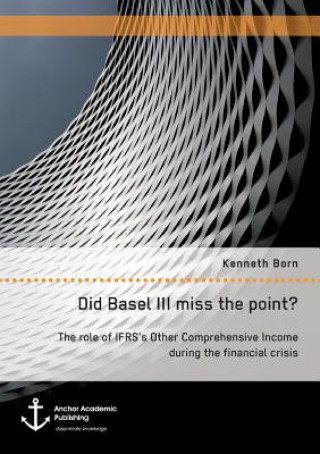
Kod: 15598768
Did Basel III miss the point? The role of IFRS's Other Comprehensive Income during the financial crisis
Autor Kenneth Born
The broad consensus before the recent financial crisis was that the so called fair value accounting (FVA) improves transparency contrary to the historical cost model. Since 2008, the discussion has been on the root cause of the cr ... więcej
- Język:
 Angielski
Angielski - Oprawa: Miękka
- Liczba stron: 56
Wydawca: Anchor Academic Publishing, 2017
- Więcej informacji o książce

62.58 €
Zwykle: 63.90 €
Oszczędzasz 1.32 €

Dostępna u dostawcy
Wysyłamy za 15 - 20 dni
Zobacz książki o podobnej tematyce
-

Ivan Langer V síti
7.90 € -20 %
Podaruj tę książkę jeszcze dziś
- Zamów książkę i wybierz "Wyślij jako prezent".
- Natychmiast wyślemy Ci bon podarunkowy, który możesz przekazać adresatowi prezentu.
- Książka zostanie wysłana do adresata, a Ty o nic nie musisz się martwić.
Więcej informacji o Did Basel III miss the point? The role of IFRS's Other Comprehensive Income during the financial crisis
Za ten zakup dostaniesz 156 punkty
 Opis
Opis
The broad consensus before the recent financial crisis was that the so called fair value accounting (FVA) improves transparency contrary to the historical cost model. Since 2008, the discussion has been on the root cause of the crisis, which lessons can be gleaned from it and how making the same mistakes again can be avoided. Basel III was implemented in order to improve the regulatory environment and was the response of regulators and politicians to public pressure and suspicions raised by the bail out programmes for banks. Consequently, an until then inconceivable number of new regulations and regulatory bodies were introduced. FVA was also blamed as part of the cause of the recent financial crisis. Available-for Sales (AfS) securities represent a major component of bank balance sheet asset. Gains and losses of AfS-positions are recorded within the Other Comprehensive Income (OCI). The OCI includes items which are not recognized (IAS 1.7) in income statements but increase or decrease a bank's equity. The items also include income and expenses from Available-for-Sale positions (AfS) in accordance with IAS 39. On October 13th, 2008, an amendment to IAS 39 was published by IASB. This amendment did authorize the reclassification of assets. This amendment clearly demonstrates the influence of FVA on the value of assets of banks that apply IFRS. The main objective of this book is to verify the influence of OCI and whether the new regulations sufficiently capture this critical factor. Regulators should ensure that unrealized profits do not result in a capital drain. One way to assure this is to make OCI subject to a prudential filter and to deduct it from regulatory capital, which was the case until CRR became effective on January 1st, 2014 (CEBS guideline 2004). Basel III is even less strict than Basel II in that regard. Article 26(1) CRR clearly states that CET1 items must be recognized only in case they are really available to the financial institution for "unrestricted and immediate use to cover risks or losses as soon as these occur". Nevertheless, with the introduction of the CRR, the prudential filter for positions that caused the financial crisis and led to poor capitalization of banks was not strengthened but actually removed. At present, CRR does not envisage any filter for unrealized gains parked in OCI.
 Szczegóły książki
Szczegóły książki
Kategoria Książki po angielsku Economics, finance, business & management Economics
62.58 €
- Pełny tytuł: Did Basel III miss the point? The role of IFRS's Other Comprehensive Income during the financial crisis
- Autor: Kenneth Born
- Język:
 Angielski
Angielski - Oprawa: Miękka
- Liczba stron: 56
- EAN: 9783960671053
- ISBN: 3960671059
- ID: 15598768
- Wydawca: Anchor Academic Publishing
- Waga: 77 g
- Wymiary: 210 × 148 × 3 mm
- Data wydania: 10. January 2017
Ulubione w innej kategorii
-
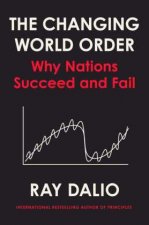
Principles for Dealing with the Changing World Order
24.34 € -4 % -

Why Nations Fail
11.25 € -13 % -

Freakonomics
8 € -20 % -

Pyramid Principle, The
51.22 € -

Business Model Navigator, The
26.67 € -13 % -

Team Topologies
23.93 € -11 % -

Misbehaving - The Making of Behavioral Economics
10.64 € -10 % -

Irrational Exuberance
20.38 € -7 % -

Start-Up Nation
9.12 € -29 % -

Think Like a Freak
9.73 € -2 % -

Microeconomics and Behaviour, 3e
95.75 € -
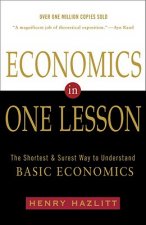
Economics In One Lesson
14.70 € -27 % -
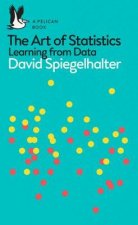
Art of Statistics
10.95 € -23 % -

Rational Optimist
13.68 € -

How I Made One Million Dollars Last Year Trading Commodities
39.15 € -22 % -

Breakthrough Copywriter
17.03 € -

Currency Wars
15.81 € -17 % -

Human Action
38.03 € -

Cult of We
11.35 € -28 % -

History of Economics
15.31 € -28 % -

Fed Up
25.55 € -17 % -

Essential Mathematics for Economic Analysis
73.13 € -

Liar's Poker
13.68 € -

Predictably Irrational
14.90 € -20 % -

A-Level Economics: Year 1 & 2 Complete Revision & Practice (with Online Edition)
26.47 € -15 % -

(Mis)Behaviour of Markets
13.38 € -28 % -

Price of Inequality
9.63 € -19 % -
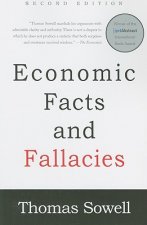
Economic Facts and Fallacies
16.63 € -21 % -

The Invisible Hand
7.09 € -17 % -

Scrum - A Pocket Guide - 3rd edition
22.81 € -3 % -

Debt, 10th Anniversary Edition
25.76 € -28 % -

Economics 101
13.38 € -28 % -

Leading at a Higher Level
30.83 € -9 % -

Econometric Analysis, Global Edition
86.52 € -
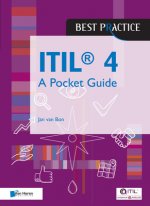
ITIL4 A POCKET GUIDE
23.73 € -

Decision Book
13.58 € -28 % -

Cartoon Introduction to Economics
16.42 € -22 % -

Economics of the Public Sector
78.61 € -

Discovery, Capitalism & Distributive Justice
19.67 € -7 % -

Economics: The User's Guide
12.87 € -25 % -

Freakonomics
5.98 € -30 % -

Phishing for Phools
16.32 € -14 % -

Misbehavior of Markets
22.41 € -

Hypomanic Edge
20.08 € -16 % -
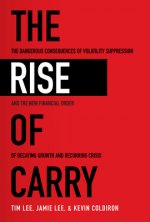
Rise of Carry: The Dangerous Consequences of Volatility Suppression and the New Financial Order of Decaying Growth and Recurring Crisis
24.13 € -27 % -

Myth of Capitalism - Monopolies and the Death of Competition
20.08 € -31 % -

ISE Investments
86.42 € -

How Rich Countries Got Rich and Why Poor Countries Stay Poor
15.31 € -28 % -

Principles of Economics
15.51 € -14 %
Osobní odběr Bratislava a 2642 dalších
Copyright ©2008-24 najlacnejsie-knihy.sk Wszelkie prawa zastrzeżonePrywatnieCookies


 Vrácení do měsíce
Vrácení do měsíce Zdarma od 49.99 €
Zdarma od 49.99 € 02/210 210 99 (8-15.30h)
02/210 210 99 (8-15.30h)